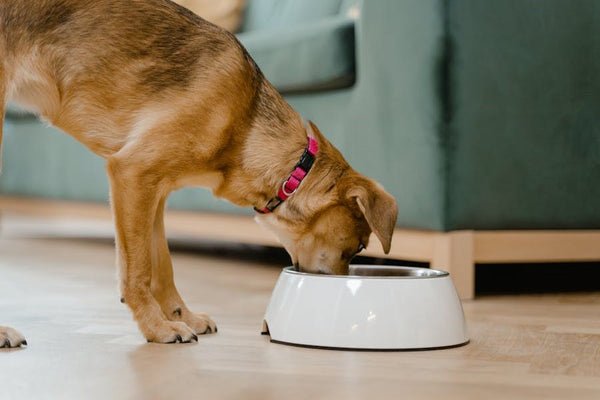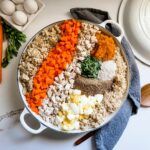Table of Contents
Proper digestion is crucial for your pet’s overall health and well-being. Understanding how to improve pet digestion can help prevent digestive issues and ensure your pet stays happy and healthy. This guide provides essential tips to enhance your pet’s digestive health.

1. Balanced Diet
Feeding your pet a balanced diet is the foundation of good digestion.
- High-Quality Food: Choose high-quality pet food with natural ingredients and avoid fillers.
- Balanced Nutrients: Ensure the diet contains the right balance of protein, fats, and carbohydrates.
- Age-Appropriate: Select food that is appropriate for your pet’s age, breed, and size.
2. Regular Feeding Schedule
Maintaining a regular feeding schedule helps regulate your pet’s digestive system.
- Consistent Timing: Feed your pet at the same times every day.
- Portion Control: Avoid overfeeding by measuring portions accurately.
- Avoid Late-Night Feeding: Feed your pet several hours before bedtime to allow for proper digestion.
3. Adequate Hydration
Ensuring your pet stays hydrated is essential for healthy digestion.
- Fresh Water: Provide fresh, clean water at all times.
- Multiple Sources: Place water bowls in different areas of your home.
- Wet Food: Incorporate wet food into their diet to increase moisture intake.
4. Probiotics and Prebiotics
Probiotics and prebiotics support a healthy gut flora and improve digestion.
- Probiotic Supplements: Consider adding probiotic supplements to their diet.
- Prebiotic-Rich Foods: Include prebiotic-rich foods like pumpkin or fiber supplements.
- Consult Your Vet: Talk to your vet about the best probiotic and prebiotic options for your pet.
5. Avoid Table Scraps
Feeding your pet table scraps can lead to digestive issues and obesity.
- Stick to Pet Food: Provide only pet food and treats designed for their dietary needs.
- Avoid Human Food: Many human foods can be harmful to pets.
- Educate Family Members: Ensure everyone in the household follows this rule.
6. Regular Exercise
Exercise promotes regular bowel movements and improves overall digestion.
- Daily Walks: Take your pet for daily walks to keep them active.
- Playtime: Engage in regular play sessions to stimulate their digestive system.
- Interactive Toys: Use toys that encourage physical activity.
7. Monitor Weight
Maintaining a healthy weight helps prevent digestive issues and other health problems.
- Regular Weigh-Ins: Weigh your pet regularly to monitor their weight.
- Adjust Diet: Adjust their diet as needed to maintain a healthy weight.
- Consult Your Vet: Seek veterinary advice if your pet is overweight or underweight.
8. Avoid Stress
Stress can negatively impact your pet’s digestion and overall health.
- Calm Environment: Create a calm and safe environment for your pet.
- Routine: Maintain a consistent daily routine to reduce stress.
- Comfort Items: Provide comfort items like toys or blankets.
9. Regular Vet Check-Ups
Regular veterinary check-ups ensure any digestive issues are identified and treated early.
- Annual Exams: Schedule annual veterinary exams to monitor their health.
- Digestive Health: Discuss any digestive concerns with your vet.
- Follow Recommendations: Follow your vet’s recommendations for diet and care.
10. Gradual Dietary Changes
When changing your pet’s diet, do so gradually to prevent digestive upset.
- Slow Transition: Gradually mix the new food with the old food over 7-10 days.
- Monitor Reactions: Watch for any adverse reactions to the new food.
- Adjust Accordingly: If digestive issues occur, slow the transition process.
Additional Resources on How to Improve Pet Digestion
For more detailed information and support, check out these trusted resources:
Understanding how to improve pet digestion is crucial for maintaining your pet’s health and happiness. By following these tips, you can help ensure your pet’s digestive system functions optimally. For more resources on pet care and products, visit our Pet Care section.
FAQs
What are common signs of digestive issues in pets?
Common signs include vomiting, diarrhea, constipation, loss of appetite, and bloating. If you notice any of these symptoms, consult your vet.
Can I give my pet human probiotics?
It’s best to give your pet probiotics specifically formulated for animals. Consult your vet for the best options.
How can I prevent my pet from eating too quickly?
Use slow feeder bowls or puzzle feeders to slow down their eating. This can help prevent bloating and improve digestion.
Are there specific foods that can help with my pet’s digestion?
Yes, foods rich in fiber, probiotics, and prebiotics can aid digestion. Pumpkin and sweet potatoes are examples of pet-friendly foods that support digestion.
How often should I take my pet to the vet for digestive issues?
Regular annual check-ups are recommended, but if your pet shows signs of digestive issues, schedule a vet visit immediately.
Is it okay to switch my pet’s food abruptly?
No, abrupt changes can cause digestive upset. Gradually transition to new food over a week to avoid issues.
Conclusion
Ensuring proper digestion in your pet is essential for their overall health and well-being. By following these tips on how to improve pet digestion, you can help your furry friend lead a happier, healthier life.
Get LIFETIME ACCESS to “My Private Prompt Library”: https://bit.ly/MTSPromptsLibrary
Looking for a custom GPT? or SEO services for your website? Hire me on Fiverr: https://bit.ly/Hire_me_as_a_Freelancer
============================================
Get LIFETIME ACCESS to “My Private Prompt Library”: https://bit.ly/MTSPromptsLibrary











